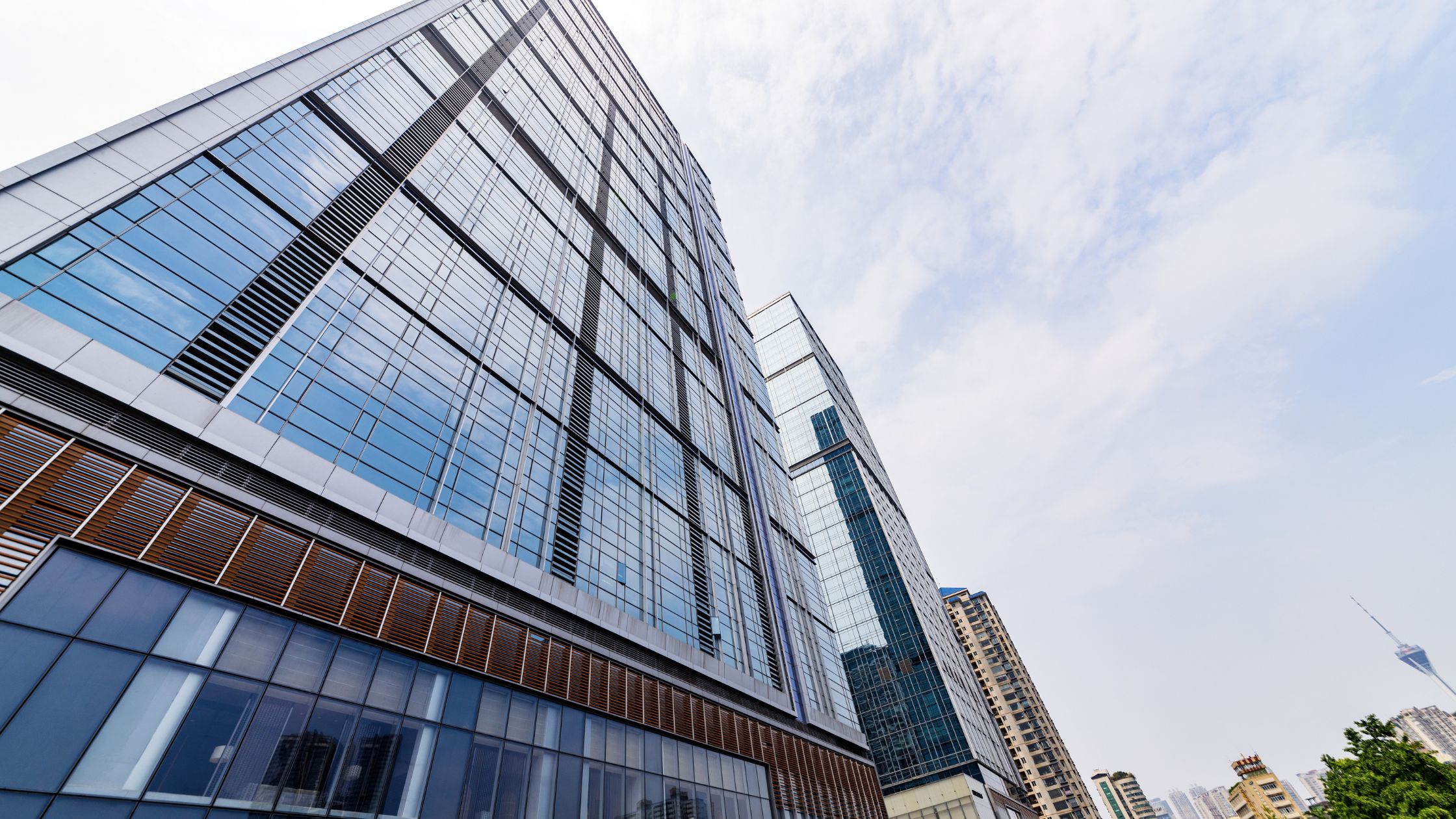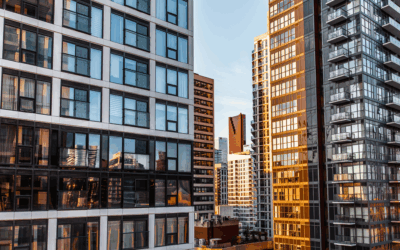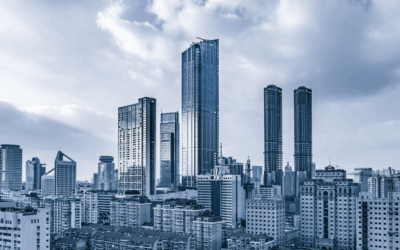Climate change has been the talk of the town for a long time, and potential results in CRE are now visible. It’s important that all those involved in the industry start discussing and making efforts to change.
The topic has become crucial as commercial buildings are quite vulnerable to the effects of climatic change and generate significant emissions.
Keeping that in mind, it is crucial for businesses and others involved in the industry to understand how global warming affects operations and what steps can be taken now to help protect themselves from the impacts in the future.
The decision one takes now will have a major impact on the overall industry. The blog post here will explore the ways climate change presents opportunities and risks for the CRE market. So it will help you as an investor to make informed decisions ahead.
Historical context
Over the last few decades, global climate change has made a major impact on various industries, and commercial real estate is one of them.
The rising Global temperature, increasing sea levels, and extreme weather events are all major results of human-induced climate change. They have started to reshape the landscape of the CRE industry.
Historically, the CRE was centered around accessibility, strategic location, and the promise of business growth in urban centers.
However, during the last few years, there has been an increase in understanding and awareness of environmental impacts. This has resulted in a huge shift in how the industry leaders are approaching CRE investment.
Mini factors like the green movement in commercial real estate have impacted the CRE industry. For instance, properties located in low-lying or coastal areas come with high flood risk due to the rising sea level. Likewise, properties in wildfire or storm-prone areas have less desirability due to the risk.
Considering all these reminders, the CRE industry has started to respond proactively to environmental concerns and is witnessing a huge shift towards sustainability and resonance.
The sector has seen upgrades to green buildings designed to be more energy efficient, reducing carbon footprint and for better water management.
The buildings now incorporate renewable energy sources like wind or solar power and use materials that are eco-friendly in nature.
Another major impact has been climate risk assessment during the transactions for CRE is increasing. The buyers are factoring the potential impact of climate change into the long-term value of the property.
As the world is now aware and adapting things to make the world a better place, the CRE industry continues to work. The focus is not just on being environmentally friendly but also on enhancing the value of the property and its profitability.
The trend clearly reflects the shifting priority of developers, investors, and consumers toward more sustainability in CRE.
Impact on the CRE
Climate change for years has been a peripheral issue for the CRE industry. Things now have become a lot more serious as the investors are now required to sign net zero commitments. It is the regulatory compliance laid by the local and state Governments.
The consequences of climate change are known to all. The regions across the country are facing extreme heat, flooding, wildfires, storms, and others.
As the number of severe events continues to grow, the climate risk has taken on a new importance, with asset managers, investors, and property owners beginning to understand the impact and have a property risk and valuation done.
The potential growth and the risk exposure to climate change and the resulting insurance claim have increased the risk premiums, affecting the availability and affordability of insurance coverage for climate-related hazards.
Physical impact
- Increase in the sea levels
The properties located in the low-lying coastal areas are facing issues due to the rising sea levels. This often leads to increased flooding in the areas. Thus, to save the investment, some of the businesses are relocating to avoid the consistent threat of water damage.
- Extreme weather conditions
Frequent and unpredictable extreme weather events like wildfires have brought severe risks to commercial properties. The cost of renovation and redecorating after the disaster can be quite huge. It requires better planning and resilience in building design.
Economic implications
- Reduced value of the property
The physical threats from climate change are quite significant. Thus, the properties located in the risk-prone areas now experience significant value depreciation.
The investigation is now hesitating to finance the properties that come with a higher chance of being disrupted by climate-related factors. Thus, this has resulted in a decrease in demand and lower value of the properties.
- Higher insurance cost
As climate change increases the chances of extreme weather events, companies are now adjusting the risk assessment.
Such changes in insurance coverage often result in higher insurance premiums for commercial properties, resulting in higher operation costs for the business. Thus, covering it all and still being profitable becomes quite tough.
Regulatory and policy changes
The regulatory or policy reforms are brought in to influence the CRE investors to transform CRE into green and environment-friendly space
- Energy regulations
Governments all across the globe have brought stringent energy regulations as a mandate to reduce carbon emissions. The legislative push makes it important for CRE developers to comply with the standard for energy-efficient building and renewable energy usage to achieve minimal carbon footprints.
- Sustainability incentives
Carbon reduction laws have now provided incentives like grants and tax credits for properties that meet certain sustainability standards or make use of renewable energy resources.
This encourages environmentally friendly practices in the CRE sector and gives reason to go green for CRE investment. Ultimately, all the changes in the policy implications of the CRE industry are about reconsidering its strategies.
The industry needs to focus on sustainability, resilience, and adaptability to shield itself from climate change’s financial and physical fallout. Thus scattering to the evolving market needs.
Adaptive strategies for the investors
In the current world, where climate change is no longer a threat but a present reality, the property owners or investors in the CRE need to understand and adapt. Here are some of the essential strategies that can make a huge difference.
Infrastructure upgrade
Considering the impact of current climate change, taking measures now is the key. For instance, instead of the usual entrance, a modern flood barrier seamlessly integrated into the architecture will be a great way to protect the property.
It will not only be aesthetic, but the barriers can also be protective during rising sea levels or sudden floods.
Also, incorporating energy-efficient systems like solar panels or smart windows that adjust based on the sunlight will help cut the cost. Not to mention, they will also reduce carbon footprint to a great level.
This can be a great deal as you will be safeguarding the property and will also be contributing towards the betterment of Mother Earth.
Diversifying portfolio based on geographical factors
As the regions are all experiencing different climate-related impacts, it is now wise for the property investors to spread the CRE investment for the most profit.
For instance, if you have always been inclined towards coastal properties, it is not time to consider adding some inland Mountain City real estate to your portfolio.
This way, even if one area faces climate change, your investment in the other could offer better growth and stability. You can think of it as a real-world Monopoly game where buying properties across the board will offer you a better chance of success.
Using sustainable building practices
Let’s consider an imaginary scenario where you walk into a building with all the walls adorned with living greenery that purifies they are naturally.
While the floors are made up of recycled material. They will not only be cost-saving but also designer. Sustainable building is not just about taking steps for the environment.
It is also about creating space that feels good and truly stands the test of time. Whether it is sourcing local materials to reduce transportation or designing spaces to maximum light to reduce electricity usage, the practice must be soothing and smart for the investment goals.
With this, the tenants and the investigation will also take notice of such things, and you will be able to sell your property at a much higher price than expected.
Thus, it is time to think about bringing in environmentally friendly practices. The current situation is all about focusing on making the changes, using the strategies to the best, and working towards the betterment of not just the investment but also Mother Earth.
Conclusion
The climatic change is bringing huge challenges for the CRE industry. Thus, it is essential to understand the changes that can be brought now for effectively managing the property and also the betterment of Mother Earth.
If you are looking for financing help to bring in the changes in the property, you can consider trusting Private Capital Investors. They will help you understand all the options available and decide about the financing. Rest assured you will get the required financing at an extremely low interest rate.





